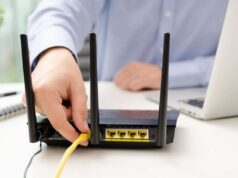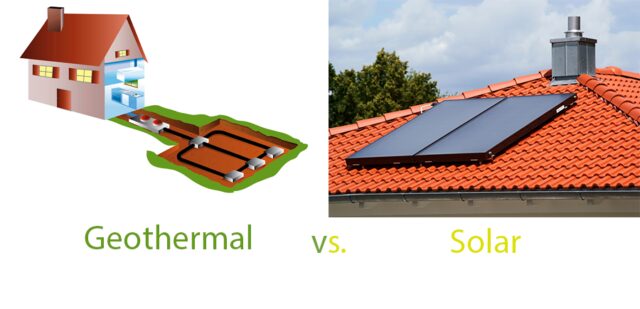
Nowadays, we cannot only make our homes smart by using multiple devices and AI, but we can also make them green. How to do this? Well, as you can assume, by using renewable sources of energy. A few decades ago, this wasn’t an option. However, not only is it possible these days, but you can also choose between different sources of power.
In this article, we have decided to focus on geothermal and solar energy. We are going to provide you with the pros and cons of both of these, and hopefully, help you make a decision on which one is a better investment. If you want to learn about other kinds of renewable energies, you can read more about them.
Page Contents
Pros of geothermal energy
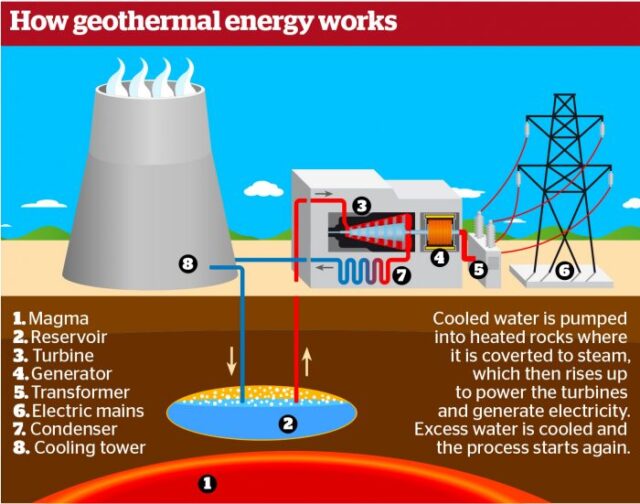
It is believed that currently, geothermal energy is the most convenient choice for most people. It might not be as developed or popular as the solar one, but it is on its way of getting there.
Environmentally friendly
The first obvious benefit and a reason why you should consider investing in this type of energy is that it is environmentally friendly. Yes, there are some issues that we are going to discuss later, but the point is that pollution is much lower when compared to fossil fuels. This is true because of the fact that this energy is extracted from the earth, without burning any fossils.
Renewable
Another evident advantage is that it is renewable. What makes it a better choice than solar power is the fact that it is available all year long meaning that the weather condition cannot disturb it in any way. Another important fact is that this type of energy is naturally restored meaning that we cannot ever run out of it.
Efficient heat pumps
What we mean by ‘energy-efficient’ is that power plants that turn geothermal power into electricity use up to 50% less power than any other type of pumps. In addition, these require little maintenance and they can work perfectly for about 20 years.
Downsides of geothermal energy
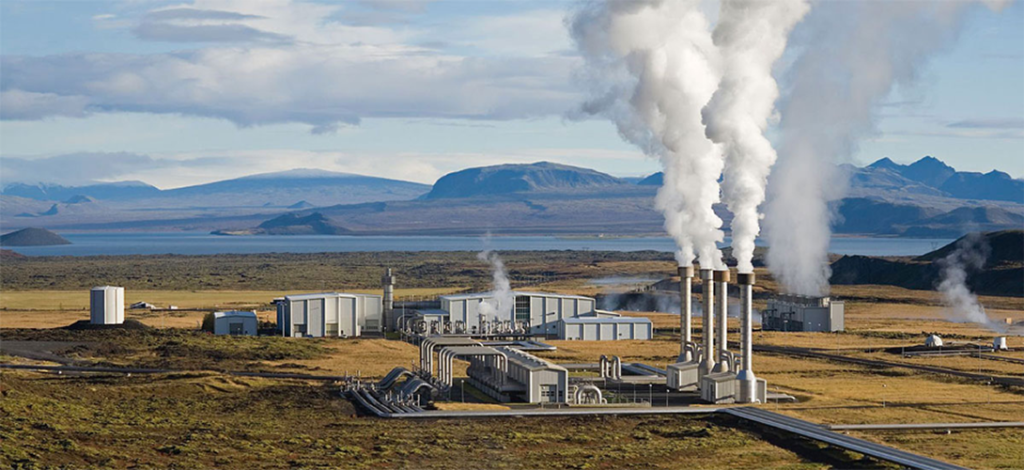
Greenhouse emission
Even though this energy is considered to be environmentally friendly, it doesn’t mean that it doesn’t cause some sort of damage. When being extracted from the earth, some greenhouse gasses are also released like methane, carbon dioxide, hydrogen sulfide, and ammonia. Nevertheless, the emission of these is still significantly lower than those produce by fossil fuels.
It is expensive
Another disadvantage of geothermal power is the fact that it is quite expensive. Individual homeowners are required to invest significant initial funds, and this is the reason why most of them change their minds about it. Still, even though the installation of the system is very pricey, you have to know that you will be able to earn or save that amount of money in the future.
Location
Due to the fact, that this system is not yet fully developed, the location plays a significant role. After all, finding these reservoirs is quite a challenge. Countries like Iceland and Philippines have been blessed with natural resources on their territory, while many others haven’t. Additionally, if one were to try to transport the power via hot water, a considerable amount of electricity would be lost.
Advantages of solar energy
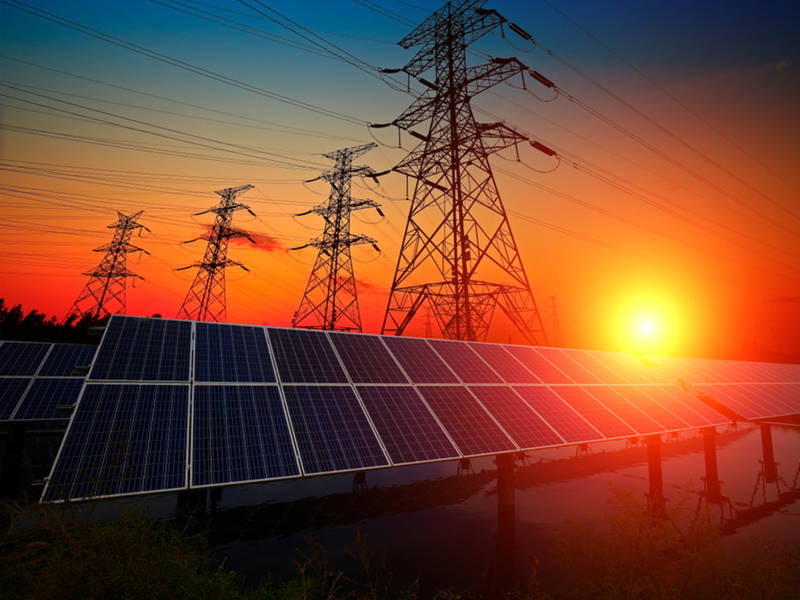
Availability
The biggest advantage of solar energy is not only the fact that is completely renewable but the fact that it is also available all around the world. We have already discussed that this is a major downside of geothermal power. Plus, there will always be the sun, meaning that we will always have access to this one.
Cost-efficient
This is the most frequent reason why people decide to make this investment. Due to the reason that solar panels will produce all the energy your household needs your bills are going to drop significantly. However, if you are interested in the exact number, we cannot provide you with one. Why? Well, simply because it depends on the size of the system and panels you install, as well as on the amount of electricity you spend.
Diversity of uses
Probably the first thing that comes to your mind upon hearing the words ‘solar energy’ is electricity. This is to be expected since most people use it for this purpose. Still, as you probably know, you can use the solar system to generate heat for your home. What’s more, these panels are the perfect solution for areas that do not have access to the power grid.
Low maintenance
Generally speaking, solar panels do not require a lot of maintenance. The only thing that you have to do is keep them clean, but you can always hire a professional cleaning company for a small fee. The warranty of these is usually between 20 and 25 years which means that after that initial investment, you won’t have to worry about high additional costs.
Cons of solar power
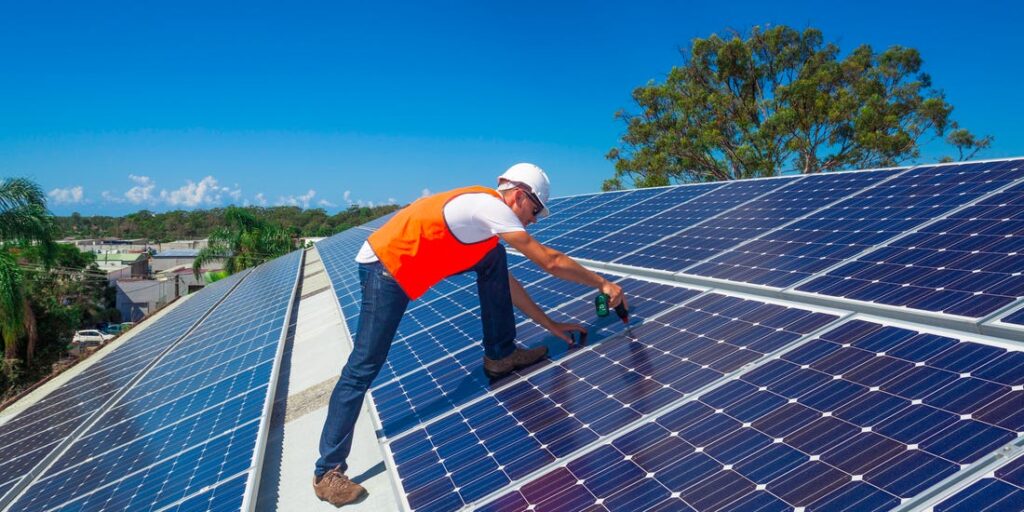
Panels cannot be installed on every roof
This is the first thing that you have to know and investigate if you are thinking about making this investment. Unfortunately, this system cannot be installed on every type of house i.e. the roof to be more exact. Some older homes have roofs made out of cedar tiles or slate and working with these is very difficult. Also, don’t forget about skylight and roof decks. However, if your home is not a good candidate for the roof panel, you can always go with ground-mounted solar panels.
It can be unreliable
Obviously, the sun is needed for this system to work. Since we cannot affect the weather, the panels are created in a way that they can produce energy during rainy and cloudy days. Still, you should know that the efficiency of the entire system will decrease, and keep in mind that it cannot function during the night time, because, well, the sun is not there.
Panels can be quite big
This can be quite a problem is you are in need of a lot of energy and your roof is not big enough. As you can assume, the more power you want to be produced, the more panels you will need. The issue can be solved by installing some of them in your yard, but keep in mind that they also need to have complete sun exposure.
It is costly
This is the final downside that we are going to discuss. Just like with the geothermal energy system, this one also requires a significant initial investment. Not only do you have to pay for the panels, but also for the inverter, wiring, batteries, and clearly, installation. However, this investment is going to pay off in the long run.





















